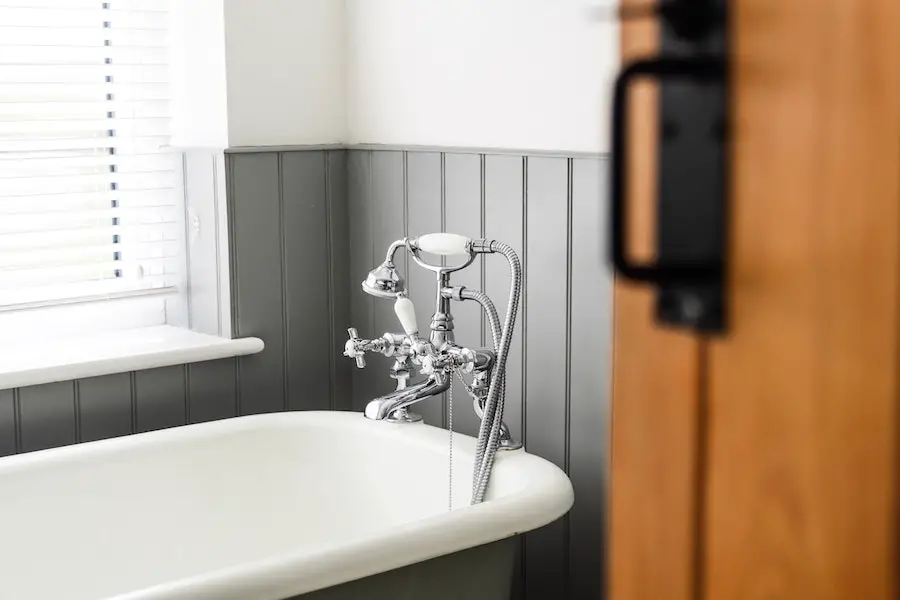
One of the worst things a homeowner can face is the reality of a clogged pipe or a clog in the sewer line. Each can cause issues with water backup. In the event of a clogged sewage line, septic lines, which run from your sinks, showers, and toilets, get completely clogged up. When this occurs, liquid and sewage can no longer adequately flow through them. Unfortunately, noticing any clogged pipe or sewage line is nearly impossible until something devastating occurs in the home.
Clogs can cause pressure to build up, resulting in either burst pipes or sewage flooding. In the case of a sewage line, it is not uncommon for the sewage system to start draining itself in reverse, coming out of sinks and shower drains. In other words, clogs are not pretty. What happens when a clogged pipe or sewage line causes damage in the home?

Will your homeowners insurance cover clogged pipes? The answer isn’t as clear as it should be.
Are Clogged Pipes Covered?
Clogs can happen to even the most responsible homeowners. Most of the time when a clog occurs, it isn’t due to any true negligence, yet homeowners insurance sees things differently. Generally speaking, sewer line clogs and simply clogged pipes are not covered by a majority of standard home insurance policies.
Your insurance company will almost always refuse to cover property damage caused by overflow from a burst pipe or sewage. Additionally, most will not cover damages if your basement sump pump overflows. However, some carriers do offer additional coverage options, aside from the standard policy, that can help with these issues for an added monthly premium.
How Do I Know if Clogged Pipes or Sewer Lines are Covered by My Insurance?
If you know for a fact you’re no paying for additional coverage, you’re going to want to go over your homeowners insurance policy carefully to understand whether or not damage from clogged pipes or sewer lines is covered. Keep in mind, insurance will never replace or clear clogged pipes before any damage has occurred. Those costs rest solely on your shoulders.
If you look over your policy and still aren’t sure, give your insurance agent a call right away. Most will be more than willing to help you navigate the tricky world of insurance coverage regarding plumbing. If you do not have any coverage in place, you may be able to pick up additional coverages that can kick in should you suffer from damage due to a clog. What types of additional plumbing coverage are worth buying?
Additional Plumbing Coverage
Most of the major homeowners insurance companies offer supplementary plumbing coverage to subsidize your standard policy. You’ll be charged an added fee each month, but you’ll have more complete coverage for plumbing related issues. If you’re not sure where to start when it comes to additional plumbing coverage, start by looking at the overall location of your home.
If you live on or near a flood plain, you’re going to need additional coverage riders and endorsements. Additionally, if you live in a very old home, you may want to look into purchasing more robust coverage. What types of homeowners insurance plumbing coverage are available?
Sewer or Water Backup
If clogged pipes or sewer lines are a concern, you’re going to want to acquire a sewer or water backup rider. While this won’t ensure coverage in the event of a clogged sewer line in the home or water damage from a clogged pipe, it can come into handy if your home’s lateral sewer line (the line that connects an urban sewer main to your house), backs up. Without coverage, you’re culpable for any damages that result from water overflowing into your home. Keep in mind, for a typical clog, homeowners insurance still will not cover.
Sump Pump Rider
If your home is located in an area prone to flooding, you probably have a basement sump pump to pump excess water from the home. Every now and then, these pumps can back up, leak or even burst. A standard policy will not cover sump pump discharge, but a sump pump rider will.
Mold Damage Rider
Let’s say that a clogged pipe in your home bursts and causes water damage that turns into mold damage. Your standard policy will cover some types of water damage, but it will not cover the mold that can form as a result of that damage. Luckily, a majority of insurance companies will offer a mold damage rider that can cover the cost of mold remediation.
The Takeaway
While insurance will not always cover clogged pipes or sewer lines, they may cover certain types of water damage caused by each, especially if you add additional coverage to your policies.

